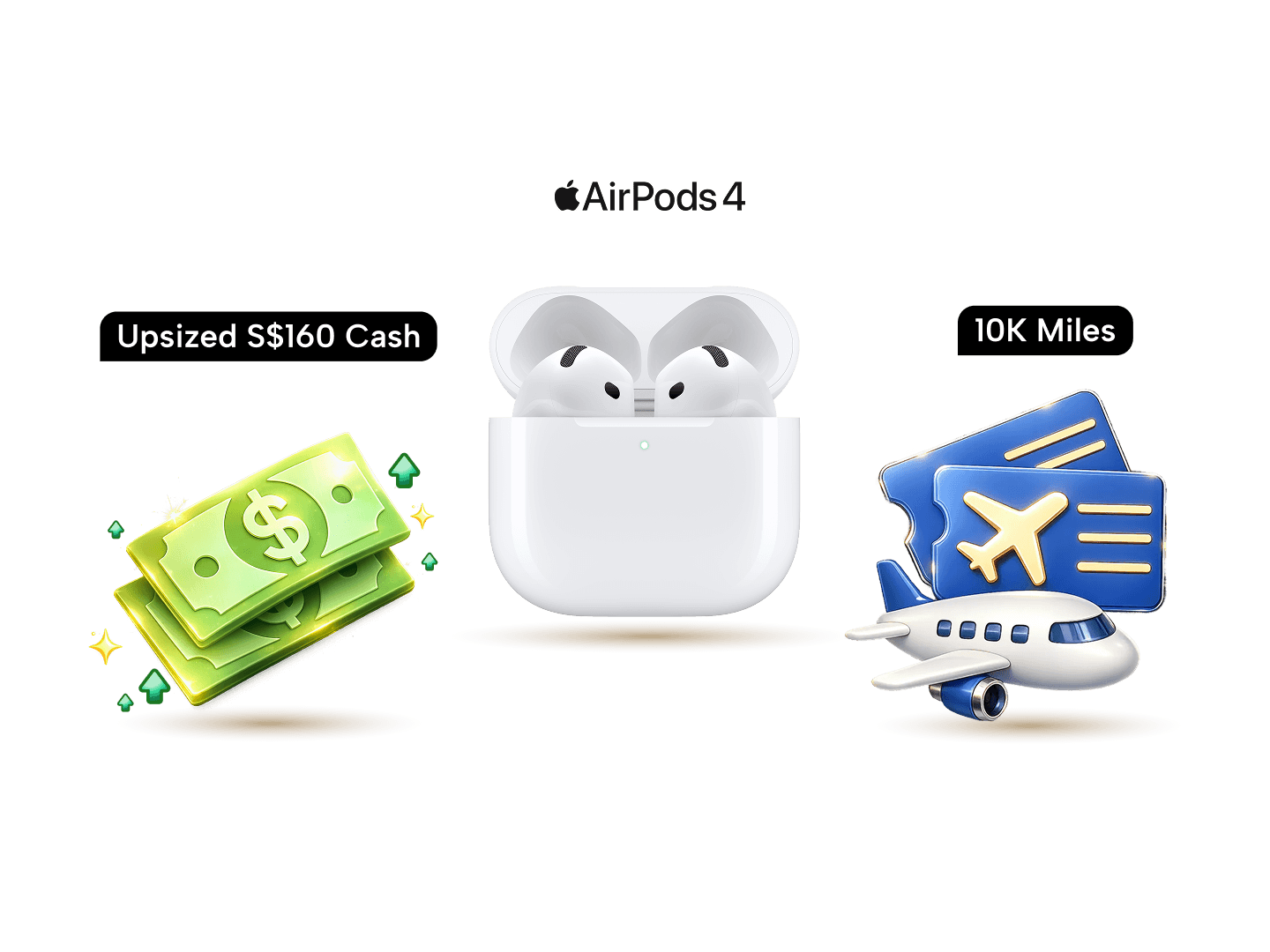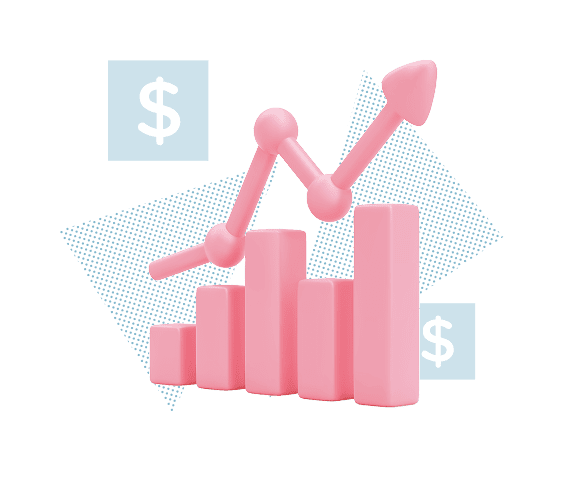Best-Performing ESG ETFs and Cheapest ESG ETFs for February 2025
Updated: 11 Dec 2025
Invest in what matters. Make a positive impact with your portfolio.

Environmental, social, and governance (ESG) investing is gaining momentum as investors increasingly seek to align their portfolios with their values. This growing interest reflects a shift towards values-based investing, where investors seek to generate financial returns while contributing to positive social and environmental change. ESG funds offer a way to support companies committed to sustainability, social responsibility, and good governance while potentially achieving competitive financial returns.
Looking to get into ESG investing? This article explores the top-performing and most cost-effective ESGs available to Singaporean investors, empowering you to make informed investment decisions that contribute to a better world.
What is an ESG ETF?
ESG exchange-traded funds (ETFs) are investment funds that track a basket of companies screened for their performance on ESG factors. These factors include a company's environmental impact (e.g., carbon emissions, resource management), social practices (e.g., labour standards, community engagement), and governance structure (e.g., board diversity, executive compensation).
Unlike traditional ETFs that focus solely on financial performance, ESG ETFs incorporate these non-financial factors into their investment decisions. This allows investors to support companies that are making a positive impact on the world while also potentially achieving their financial goals.
ESG ETFs offer one of the best ways to invest in companies that prioritise sustainability and social responsibility. Not only are they convenient and diversified, ESG ETFs also provide exposure to a basket of companies that meet specific ESG criteria, allowing investors to participate in the growth of responsible businesses. In fact, the increasing availability of ESG ETFs in Singapore reflects the growing demand for investment options that align with investors' values and contribute to a more sustainable future.
Top-performing ESG ETFs in Singapore
Looking for ESG ETFs that have demonstrated strong performance? These funds have a track record of delivering competitive returns while adhering to ESG principles. Consider these best-performing funds when building your sustainable investment portfolio:
|
Ticker |
ESG ETF |
Net Assets |
YTD Daily Total Return |
Yield |
Top Invested Sectors |
|
MBH.SI |
Nikko AM SGD Investment Grade Corporate Bond ETF |
588.45M |
0.83% |
3.31% |
Government agencies, diversified banks, banks and real estate |
|
G3B.SI |
NikkoAM Singapore STI ETF |
883.21M |
2.85% |
4.30% |
Financials, industrials and real estate |
|
BYJ.SI |
Phillip SGX APAC Dividend Leaders REIT ETF |
7.15M |
3.82% |
5.52% |
Real estate |
|
ES3.SI |
SPDR STI ETF |
1.69B |
3.34% |
4.04% |
Financials and real estate |
|
A35 |
ABF Singapore Bond ETF |
1.02B |
1.09% |
2.35% |
Government agencies |
Disclaimer: Data is sourced from Yahoo Finance and Morningstar as of March 3, 2025, and is intended for informational purposes only. Past performance is not indicative of future results.
>> Some brokers are better than others. Read our roundup of top-rated brokerages for online stock trading
⚡SingSaver x Tiger Brokers Flash Deal⚡
Open a Tiger Brokers account and fund a minimum amount of USD 1,000 within the promotional period to receive an upsized S$160 cash, S$180 Grab voucher, 10,000 upsized Max Miles by HeyMax (worth S$180), or Apple AirPods Gen 4 (worth S$199). Offer is stackable with Tiger Brokers' welcome offer. Valid till 31 March 2026. T&Cs apply.
Most Cost-Effective ESG ETFs in Singapore
Investing responsibly doesn't have to come at a high cost. These ESG ETFs offer competitive expense ratios, allowing you to maximise your returns while supporting companies committed to sustainability and social responsibility. Explore these cost-effective options to build a responsible portfolio without compromising on your financial goals:
>> Learn how to choose the best mutual funds in 2025
|
Ticker |
ESG ETF |
Expense Ratio |
|
ESGE |
iShares ESG Aware MSCI EM ETF |
0.26% |
|
MBH.SI |
Nikko AM SGD Investment Grade Corporate Bond ETF |
0.26% |
|
A35 |
ABF Singapore Bond ETF |
0.24% |
|
ESGD |
iShares ESG Aware MSCI EAFE ETF |
0.21% |
|
ESGU |
iShares ESG Aware MSCI USA ETF |
0.15% |
Disclaimer: Data is sourced from Blackrock as of March 3, 2025, and is intended for informational purposes only. Past performance is not indicative of future results.
Advantages of ESG investing
Investing in ESG ETFs offers a compelling opportunity to align your financial goals with your values. By supporting companies committed to environmental sustainability, positive social impact, and strong governance, you can contribute to a better world while potentially enhancing your investment returns. ESG investing isn't just about feeling good; it's about making a tangible difference.
Make a difference with your investments.
Support companies driving positive change, and build a portfolio that reflects your values.
ESG factors can also be indicators of a company's long-term resilience and potential for growth. In fact, a 2024 Institutional Investor Survey on Sustainability done by Standford Graduate School of Business has shown that portfolio managers are more likely to favour companies with strong ESG practices, as they’re considered to be less risky and may even outperform traditional companies in the long run. This means that by investing in ESG ETFs, you can potentially achieve both financial and social returns, creating a win-win scenario for yourself and the planet.
Selecting the right ESG funds for You
Choosing the best ESG funds for your portfolio requires careful consideration. Here's a step-by-step guide to help you make informed decisions on choosing which sustainable funds to invest in:
1. Active vs. passive ESG funds: Understanding the difference
Understanding the difference between active and passive ESG funds is crucial in making informed investment decisions. Actively managed ESG funds aim to outperform the market through strategic stock selection based on ESG criteria. Fund managers actively research and select companies that demonstrate strong ESG performance, with the goal of generating higher returns than the market benchmark. However, this active management typically involves higher fees due to the increased research and management involved.
On the other hand, passively managed ESG funds track a specific ESG index, offering a more cost-effective approach. These index funds aim to mirror the performance of the underlying index, providing diversified exposure to companies that meet specific ESG criteria. While passive funds may not outperform the market significantly, they offer lower fees and a more hands-off investment approach. The choice between active and passive ESG funds depends on your investment goals, risk tolerance, and preferred level of involvement in managing your investments.
2. Aligning your investments with your values
ESG investing empowers you to align your investments with your values, supporting companies that are making a positive impact in areas you care about. Consider the specific causes that resonate with you, whether it's tackling climate change, promoting gender equality, advancing social justice, or supporting ethical business practices.
By choosing ESG funds that focus on these specific sectors, you can actively contribute to the causes you believe in while pursuing your financial goals. This allows you to make a difference with your investment dollars, supporting companies that are working towards a more sustainable and equitable future.
3. Integrating ESG investments into your portfolio
When integrating ESG investments into your portfolio, it's essential to take a holistic approach. Evaluate your existing investments and determine how ESG funds can complement your overall investment strategy. Consider your risk tolerance, investment goals, and diversification strategy to ensure that the addition of ESG funds aligns with your broader financial plan. This may involve adjusting your asset allocation or rebalancing your portfolio to accommodate ESG investments while maintaining a diversified and risk-appropriate approach.
>> Learn the 10 things you need to know before investing in Tesla
4. Evaluating your ESG fund’s impact
To ensure your investments are truly making a difference, it's crucial to assess how a fund meets its ESG criteria. Look for transparency in their investment process, ESG ratings, and impact reporting. This will help you understand how the fund incorporates ESG factors into its investment decisions and the tangible impact it has on the companies it invests in.
You can also research the fund manager's philosophy and approach to ESG investing to ensure it aligns with your values and expectations. By actively evaluating ESG fund impact, you can invest with confidence, knowing that your money is supporting companies that are truly committed to positive change.
SingSaver x uSmart Exclusive Offer
Get an upsized S$130 Cash, a $150 eCapitaVoucher, or 9,000 Max Miles by Heymax (worth S$162) when you open a uSMART SG Account, and fund an initial single deposit of S$1,000 within the promotional period and maintain it for 30 days from the date of deposit. Valid until 31 March 2026. T&Cs apply.
What's the easiest way to invest responsibly?
Want to invest responsibly but don't know where to start? Robo-advisors can be your trusted guide. These digital platforms use algorithms to build and manage diversified portfolios, including ESG investments, based on your risk tolerance and financial goals. They offer a convenient and accessible way to incorporate ESG principles into your investment strategy, often with lower fees than traditional financial advisors.
Explore SingSaver's curated list of robo-advisors with socially responsible portfolios to find the perfect platform to kickstart your responsible investing journey.
Relevant articles
Syfe Singapore Review (2025): Multiple Portfolios For Various Investment Objectives
Need a safe place to park your emergency fund?
Explore low-risk investment options that offer stability and easy access to your money when you need it most.


